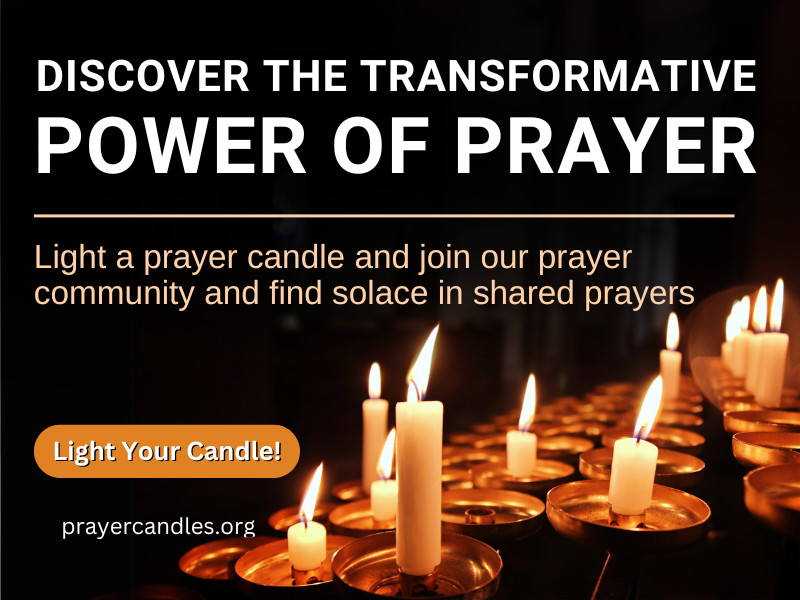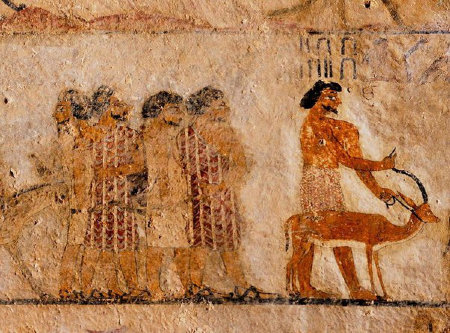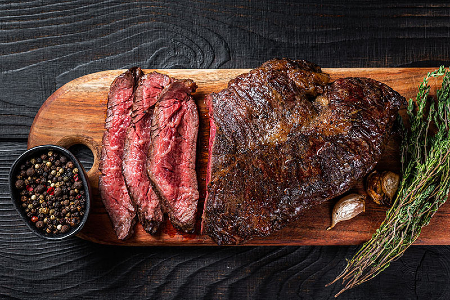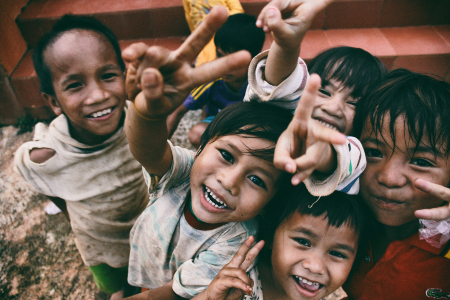We ask you, humbly: don't scroll away.
Hi readers, it seems you use Catholic Online a lot; that's great! It's a little awkward to ask, but we need your help. If you have already donated, we sincerely thank you. We're not salespeople, but we depend on donations averaging $14.76 and fewer than 1% of readers give. If you donate just $5.00, the price of your coffee, Catholic Online School could keep thriving. Thank you.Help Now >
Becoming a Catholic
Interested In Learning More About The Catholic Church?
Welcome! This page explains the process by which one can - through their local Catholic church - learn more about the faith. We hope this information is helpful to you!
The process by which adults come into the Church has come to be known as "the RCIA", which is short for "The Rite of Christian Initiation of Adults."
Who is the process for?
- The unbaptized. The primary focus of the Rite of Christian Initiation of Adults is on those who are not already Christian and have not been catechized.
- Baptized but uncatechized. Those who have been baptized either as Roman Catholics or as members of another Christian community but did not receive further catechetical formation or instruction. These typically have also not celebrated confirmation nor Eucharist.
- Those seeking full Catholic Communion. These are baptized, practicing Christians from other denominations who seek entry into the Catholic Church.
In the case of children who have reached the age of reason, the proper pastor should be consulted for information about Baptism and the other Sacraments of Initiation.
The Rite of Christian Initiation of Adults is not for adult candidates for confirmation who have already received their First Eucharist in the Catholic Church. They should have their own formation process and be confirmed at a celebration other than the Easter Vigil.
What does the process look like?
The Rite of Christian Initiation is based on the principle that the process of conversion proceeds gradually, in stages. Progress from one stage to the next is marked by a liturgical celebration in the midst of the parish community. The experience and needs of those in each category described above differ, and so the length of time may vary for each person. Nevertheless, there are certain similarities among all the groups and the process they will experience, and these can be listed as follows:
Precatechumenate
The first stage is called the period of inquiry (or the precatechumenate). This is when the individual first expresses an interest in becoming a Christian or a Catholic, and begins to explore, with the help of the parish community, what his or her relationship with Christ might be and how that might be enriched and deepened by joining this Christian community. There is no liturgical rite to mark the beginning of this stage. This period of inquiry may last several months or several years and ends either when the inquirer decides against continuing in this direction or when the inquirer feels ready to move on and the community is prepared to welcome him or her.
Catechumenate
The second stage is called the catechumenate and, for the unbaptized listed above, who are now called catechumens, should last no less than one full year. For the baptized but uncatechized the period should be a similar length. For the candidates for full communion, this stage could well be much shorter. The Rite of Acceptance into the Order of Catechumens and the Rite of Welcoming mark the beginning of this stage. Catechesis for this period is rooted in the Lectionary and the Word as it is proclaimed in the midst of the community. This is also a time for the catechumen or candidate to learn how to live as a Catholic Christian. This period ends when the catechumens and candidates express their desire to receive the sacraments of initiation and the community acknowledges their readiness.
Purification and Enlightenment
The third stage is the period of purification and enlightenment and coincides with Lent. During this time the elect (formerly the catechumens) and the candidates enter into a period of intense preparation and prayer which includes the three public celebrations of the scrutinies and is marked by the presentations of the Creed and the Lord's Prayer. The Rite of Election and the Call to Continuing Conversion are celebrated at the beginning of this stage. This period ends with the celebration of baptism, confirmation, and Eucharist at the Easter Vigil. (Note: only the elect are baptized. All the groups are confirmed and welcomed to the table.)
Mystagogy
The fourth stage is the period of post baptismal catechesis or mystagogy. At this time, the newly initiated explore their experience of being fully initiated through participation with all the faithful at Sunday Eucharist and through appropriate catechesis. The period formally lasts through the Easter season and may be marked by a parish celebration on or near Pentecost. On a more informal level, mystagogy is a lifelong process, one that all Christians are engaged in, as we all work to deepen our sense of what it means to live the Christian life.
It is important to note that those who fall into the third category above (candidates for full communion) do not always need to take part in the full process. Especially if they have been actively living the Christian life in another denomination, they are likely in need of very little catechesis and may be welcomed into the Church on any Sunday after a short period of preparation. According to the National Statutes for the Catechumenate, "Those baptized persons who have lived as Christians and need only instruction in the Catholic tradition and a degree of probation within the Catholic community should not be asked to undergo a full program parallel to the catechumenate."
I'm interested. What should my first step be?
Contact your nearest Catholic parish . Your Catholic priest can discuss with you the specifics of the initiation process at your local parish. Know that the prayers of a 65 million Catholics in the United States and the 1.2 Billion Catholics around the world are with you as you complete your journey. Best wishes!
More Prayers
Advent Prayers
Angel Prayers
Ash Wednesday Prayers
Babies Prayers
Baptism Prayers
Basic Prayers
Biblical Prayers
Birthday Prayers
Career Prayers
Children Prayers
Christ Prayers
Christmas Prayers
Communion Prayers
Confession Prayers
Congregation of the Blessed Sacrament Prayers
Consolation Prayers
Crucifix Prayers
Danger Prayers
Devotion Prayers
Disasters Prayers
Divinity Prayers
Dying Prayers
Easter Prayers
en Espańol Prayers
Evening Prayers
Faith Prayers
Family Prayers
Forgiveness Prayers
God Prayers
Grace Prayers
Guardian Angel Prayers
Guidance Prayers
Haiku Prayers
Healing Prayers
Holiday Prayers
Holiness Prayers
Holy Spirit Prayers
Home Prayers
Hope Prayers
Inspiration Prayers
Intercession Prayers
Invocation Prayers
Jesus Christ Prayers
Lent Prayers
Life Prayers
Litanies Prayers
Love Prayers
Marian (Mary) Prayers
Marriage Prayers
Martyrs Prayers
Mass Prayers
Meals Prayers
Morning Prayers
Motherhood Prayers
Other Prayers
Peace Prayers
Perseverance Prayers
Pope Prayers
Pope Francis I Prayers
Pope Leo XIII Prayers
Pope Pius XII Prayers
Praise Prayers
Prayers as Blessings
Prayers by Pope John Paul II
Prayers by St. Francis de Sales
Prayers for the Pope
Prayers in French
Prayers in German
Prayers in Latin
Prayers in Spanish
Prayers of the Church
Prayers of the Cross
Priests Prayers
Pro Life Prayers
Prosperity Prayers
Protection Prayers
Purgatory Prayers
Repentance Prayers
Requests Prayers
Saint Prayers
Salvation Prayers
Sick Prayers
Special Intentions Prayers
St. Anthony of Padua Prayers
St. Gregory the Great Prayers
St. Joseph Prayers
St. Patrick Prayers
St. Valentine Prayers
Stewardship Prayers
Strength Prayers
Study Prayers
Thanks Prayers
The Rosary in Croation
The Rosary in Dutch
The Rosary in English
The Rosary in French
The Rosary in German
The Rosary in Irish-Gaelic
The Rosary in Italian
The Rosary in Latin
The Rosary in Polish
Travel Prayers
Trust Prayers
Virtue Prayers
Vocation Prayers
Wedding Prayers
Wisdom Prayers
Join the Movement
When you sign up below, you don't just join an email list - you're joining an entire movement for Free world class Catholic education.
-

-
Mysteries of the Rosary
-
St. Faustina Kowalska
-
Litany of the Blessed Virgin Mary
-
Saint of the Day for Wednesday, Oct 4th, 2023
-
Popular Saints
-
St. Francis of Assisi
-
Bible
-
Female / Women Saints
-
7 Morning Prayers you need to get your day started with God
-
Litany of the Blessed Virgin Mary
Biblical Lost Alphabet Traced Back to Ancient Canaanite Civilization
-

What are the Health Benefits of Grass-Fed Beef for Your Body and Mind?
-

Rise Above Poverty is Empowering Children and Families Through Education and Compassion
-
Artists and Leaders Rally to Preserve the Traditional Latin Mass
-
Republicans Demand Answers Over Army Training Slide Labeling Pro-Life Groups as Terrorist Threats
Daily Catholic
 Daily Readings for Wednesday, July 24, 2024
Daily Readings for Wednesday, July 24, 2024 St. John Boste: Saint of the Day for Wednesday, July 24, 2024
St. John Boste: Saint of the Day for Wednesday, July 24, 2024 Prayer for Travelers: Prayer of the Day for Wednesday, July 24, 2024
Prayer for Travelers: Prayer of the Day for Wednesday, July 24, 2024- Daily Readings for Tuesday, July 23, 2024
- St. Bridget of Sweden: Saint of the Day for Tuesday, July 23, 2024
- A Child's Prayer to Mary: Prayer of the Day for Tuesday, July 23, 2024
![]()
Copyright 2024 Catholic Online. All materials contained on this site, whether written, audible or visual are the exclusive property of Catholic Online and are protected under U.S. and International copyright laws, © Copyright 2024 Catholic Online. Any unauthorized use, without prior written consent of Catholic Online is strictly forbidden and prohibited.
Catholic Online is a Project of Your Catholic Voice Foundation, a Not-for-Profit Corporation. Your Catholic Voice Foundation has been granted a recognition of tax exemption under Section 501(c)(3) of the Internal Revenue Code. Federal Tax Identification Number: 81-0596847. Your gift is tax-deductible as allowed by law.












 Daily Readings for Wednesday, July 24, 2024
Daily Readings for Wednesday, July 24, 2024 St. John Boste: Saint of the Day for Wednesday, July 24, 2024
St. John Boste: Saint of the Day for Wednesday, July 24, 2024 Prayer for Travelers: Prayer of the Day for Wednesday, July 24, 2024
Prayer for Travelers: Prayer of the Day for Wednesday, July 24, 2024

